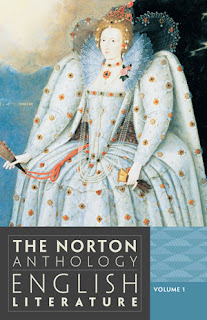Now, let’s suppose that the Yellowstone Supervolcano erupts and buries Dallas under volcanic ash for 2500 years before archaeologists excavate the ruins of my office. Ten percent of the books have survived but have lost their covers and some are not completely intact. Fortunately, the future archaeologists are able to read the pages that survive but don’t have much in the way of reference points to the culture of the early 21st century. What would they think of my library?
Because the vocabulary and writing styles are just so different, they would not automatically assume all the books were written by the same author. Neither would they classify all the material as works of fiction or works of non-fiction because some documents were narratives whereas others were not. I think the surviving JFK assassination books would give them pause as to whether to pigeonhole them under fact or fiction. As for Shakespeare and Tolkien, the language and settings are obviously more archaic, so they would suspect those works were written centuries prior to the majority of the texts. The s/f works must be some sort of prophetic material since they describe technology that is far beyond what the 21st century was capable of producing.
In effect, this is what we have with the Bible. Although it is bound between two covers, the Bible is a library of books not a single book. A library of books that were written by various authors over several centuries and with various literary forms: narrative, poetry, proverbial wisdom, prophetic and apocalyptic material, and correspondence. Some of the books appear to have been heavily edited, mixing material from different sources. Others seem to have additional material added on to them. All of the source texts date to over 2000 years ago and we know very little, if anything, about the authors and the times in which they lived.
I can anticipate some objections to this analysis.
“The unity of the whole that is the Bible distinguishes it from just a library of random books.” There is a nugget of truth here. True, there is more of a theme to the various books of the Bible than you would find in some random collection of books in a library. With one or two exceptions, every biblical book mentions God and that’s why those books were preserved rather than the Book of the Wars of the Lord (referenced in Numbers 21:14-15), the Book of Jashar (Joshua 10:13), or any of the dozens of other lost works referenced in the Bible. And, as we see with books that never made it into the New Testament, unless the work supported a message that was acceptable to the larger Christian community, it was rejected. So there was intention on the part of the scribes and religious leaders in selecting the right kind of books to make up the Bible. It wasn’t random. It's sort of The Norton Anthology of Israelite Literature.
 |
| The anthology provides an overview of poetry, drama, prose fiction, essays, and letters from Beowulf to the beginning of the 21st century. |
“One sees in the Bible an order from creation to the end of the world, the history of creation.” The obvious problem here is that the Hebrew Bible does not contain Revelation. But the bigger problem is that the order is imposed by the religious leaders who defined the canon of the Bible. In the Hebrew Bible, the first five books (known as the Torah) are followed by a section called The Prophets. Joshua, Judges, Samuel and Kings are included with Isaiah, Jeremiah, etc. in the second section but Ruth, Chronicles, Ezra-Nehemiah and Esther are included with the remaining books in the third section called The Writings.
“The Bible is one book with one principal author and it is all about one subject, Jesus the Messiah.” Just because you can make connections between the Old and New Testaments doesn’t mean those connections are real. For example, you can make the argument that the Tabernacle in the wilderness (described in Exodus 25-30) prefigures the Temple of Solomon, but if you claim it is prophesized Jesus Christ (the Tabernacle had a lampstand; Jesus is the light of the world), I think you are reading more into scripture than is there. The early Christians were Jews, so it is natural that they would borrow Jewish symbolism and religious language in writing the New Testament.
If I knew the Yellowstone Supervolcano was going to blow and that my library would be the only surviving texts from the early 21st century, I would curate the contents to better represent our civilization and culture. I’d include history texts and examples of classic literature, art and music. In the same way, the Hebrew Bible is a time capsule of the best the Israelite culture had to offer. The New Testament is the primary record of the origins of a new world religion. The Bible is more than just “God’s plan of salvation”. It is the distillation of centuries of hopes and dreams for liberation, identity, and community.
No comments:
Post a Comment